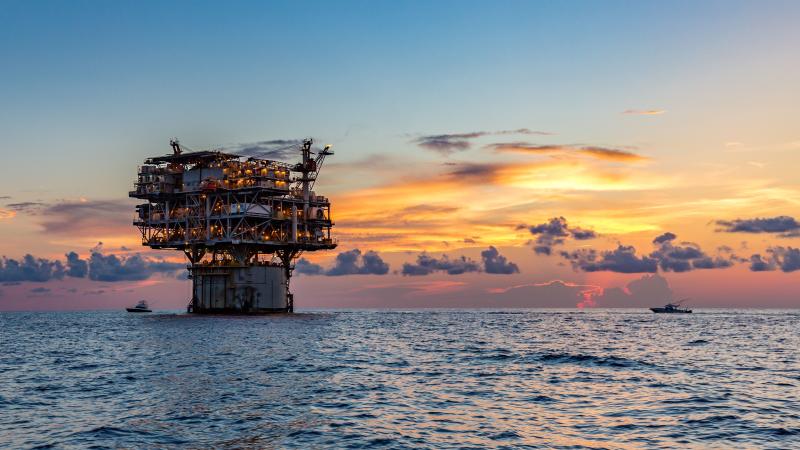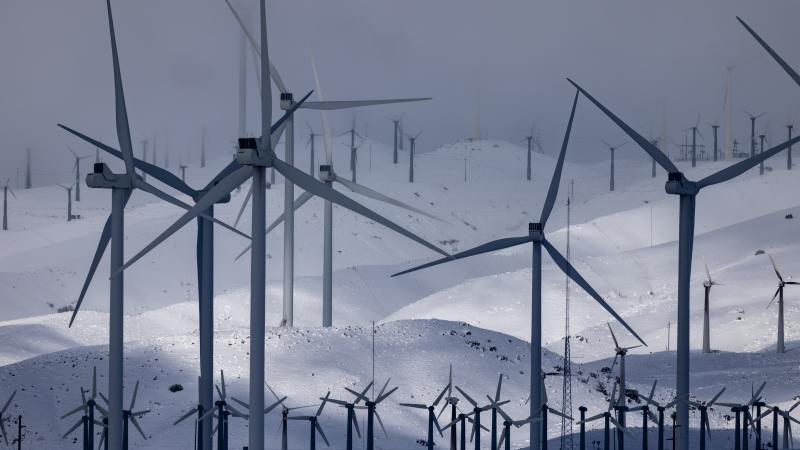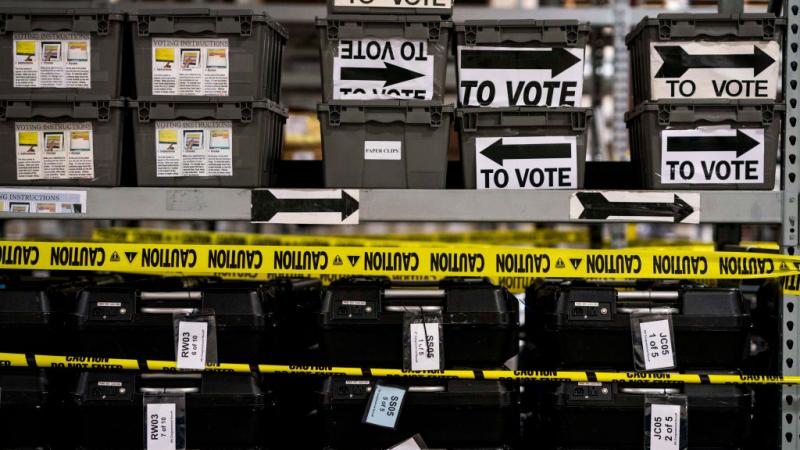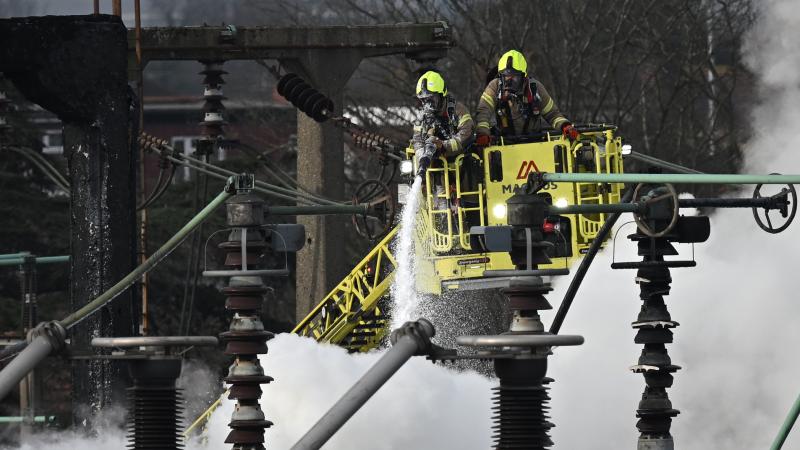As EV automakers thirst for more lithium, oil companies are trying to step in and satisfy that need
Branching Out: Exxon, Chevron, Occidental Petroleum, and SLB, the world’s largest suppliers of services to the oil industry, are all getting in on the lithium action. The Biden administration is pushing hard for a transition to electric vehicles, but at the same time, restricting the production of necessary minerals sourced in the United States.
In April, the EPA proposed strict automobile pollution limits that would require, by most estimates, as many as two-thirds of all new vehicles sold in the U.S. to be electric (EV's) by 2032. In addition to the proposed EPA rules, as of August, nine states plan to ban the sale of gas-powered cars over the next decade.
Each one of the batteries in all those EVs is going to require lithium — as well as many other rare earth minerals. That means automakers will place large demands on global lithium supplies. In turn, automakers have to scramble to find a supply of the critical mineral as fears of shortages loom.
Ironically, while the EV mandates are inspired by a vision of a world that has little need for fossil fuels, it’s Big Oil that’s stepping in to help satisfy that demand. Exxon, Chevron, Occidental Petroleum, and SLB, the world’s largest supplier of services to the oil industry, are all getting into the lithium action, Bloomberg reported this summer.
Exxon announced on Monday that it plans to become a leading producer of lithium. “This landmark project applies decades of ExxonMobil expertise to unlock vast supplies of North American lithium with far fewer environmental impacts than traditional mining operations,” Dan Ammann, president of ExxonMobil Low Carbon Solutions, said in a statement.
The company bought 120,000 acres in the Smackover formation — meaning one layer of rock underground — of southern Arkansas earlier this year for $100 million, The Wall Street Journal reported.
The operation would extract the lithium out of brine, which is the salty water inside rock formations, using a process called Direct Lithium Extraction. After the lithium has been obtained, the water will then be pumped back into the underground reservoirs 10,000 feet below the surface from where it came. Oil producers are long experienced in dealing with brine, also known as "produced water", because it is a byproduct of oil and gas extraction.
Exxon estimates it will produce enough lithium for 1 million EVs per year by 2030, but the entire Smackover formation is estimated to have enough lithium for 50 million EVs.
According to the World Economic Forum, Australia, Chile and China currently dominate the production of lithium, and the U.S. is far down on the list. China, according to the International Energy Agency (IEA), also controls about 50% to 70% of all lithium processing, which is where the raw ore is refined down to the material used in batteries.
According to the scientific journal Nature, an average electric car battery weighing 1000 pounds requires approximately 16 pounds of lithium. In 2020, according to the IEA, global lithium demand for EVs was 20,000 tons. By 2040, that’s expected to balloon by more than 40-fold.
Lithium brines contain only about 0.14% lithium, so it takes roughly 11,400 pounds of brine to manufacture one 1,000-pound EV battery.
While Big Oil is trying to corner domestic production of the mineral, the problem they face is what will happen when they run up against the Biden administration’s opposition to mining in the U.S. for the minerals it needs for the EV transition that the same administration is mandating.
An EV also needs about 183 pounds of copper and 80 pounds of nickel. In January 2022, the administration banned mining in parts of Minnesota, which effectively killed a cooper and nickel mining project.
Citing anonymous sources, Reuters reported Sunday that the administration is in talks with Indonesia for a trade deal to source nickel from the Southeast Asian country. If the administration is having such talks, it would follow the same strategy it has taken with oil and gas production, where relationships are developed with foreign producers while keeping domestic producers at bay.
Producing lithium from brine doesn’t require moving tons of earth as open-pit mining or mountain-top removal does. But as with just about any industrial process, there is some impact with brining production and therefore faces opposition from the powerful environmental lobby.
“While brine extraction doesn’t involve digging a massive hole, it uses an extensive amount of water and may cause salinization of the soil, making it infertile for vegetation and agriculture,” warned Inside Climate News.
Despite EVs being seen as the environmentally friendly transportation option, the impacts of widespread lithium brine operations could generate enough environmentalist opposition to create an impediment to the oil companies’ lithium plants.
Even if environmentalists come to accept that small concession to meet EV targets, lithium is but one mineral needed to make the mineral-intense automobiles. Benchmark Mineral Intelligence estimates that more than 384 new mines for lithium, graphite, nickel and cobalt will have to be operating to meet EV demand by 2035.
The quandary remains: The Biden administration is pushing hard for a transition to electric vehicles, but at the same time restricting the production of necessary minerals sourced in the United States.
The Facts Inside Our Reporter's Notebook
Links
- by most estimates
- nine states planned to ban the sale of gas-powered cars
- led automakers to scramble
- Bloomberg reported this summer
- Exxon plans to become a leading producer of lithium
- the Wall Street Journal reported
- extract the lithium out of brine
- Direct Lithium Extraction
- byproduct of oil and gas extraction
- enough lithium for 1 million EVs per year
- enough lithium for 50 million EVs
- According to the World Economic Forum
- according to the International Energy Agency
- According to Nature
- according to the IEA
- contain about 0.14% lithium
- 183 pounds of copper
- 80 pounds of nickel
- effectively killed a cooper and nickel mining project
- talks with Indonesia for trade deal
- the same strategy it has taken with oil and gas production
- open-pit mining
- mountain-top removal
- warned Inside Climate News
- Benchmark Mineral Intelligence estimates















